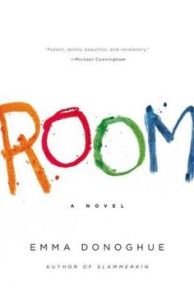Yes, the mother depicted in this film is a chode. But, to be perfectly honest, so is her completely self-involved, angst-ridden son. Nature and nurture, one does not necessarily cancel out the other. Although actor/director/writer Xavier Dolan’s semi-autobiographical first feature is sometimes burdened down by largely unsympathetic characters (the son’s big-hearted, sarcastic boyfriend was the only one I can say I ‘liked,’) it does strike a chord with it’s real and darkly funny portrayal of that gray area between childhood and adulthood where your parents seem to be the worst people on earth.
The difference being, of course, that Hubert (Xavier Dolan)’s shrill mother (Anne Dorval) is a pretty awful person, not to mention a piss-poor parent. Initially I was repelled by Hubert’s cruel antics toward his cold, passive-aggressive mama but I will admit that I came to a sort of understanding of him halfway through the film. That’s not to say liked him, ‘like’ would be too strong a word and not at all accurate to what I’m feeling, but I had a moment of realization where I was like, “Yeah, she’s awful.”
A little background on the plot- Hubert is a gay high school kid who considers himself quite the intellectual, constantly filming himself jabbering about supposedly ‘deep’ subjects. Okay, some of his musings are significant, but not as witty or clever as the self-obsessed Hubert imagines them to be. Hubert is a bright kid, but he needs to realize he’s not the center of the universe. He really needs to show appreciation for his boyfriend Antoine (Francois Arnaud,) who is super supportive and cool but doesn’t get nearly the respect he deserves.
The bane of Hubert’s existence is his mother, Chantale. Chantale seems quite put out that she has a kid to look after, let alone this contemptuous, heatedly angry man-boy, and Hubert in turn hates everything about her- the way she eats, the way she puts on lipstick, the way she lashes out at him with ice-cold rebuttals. Although I can relate to Hubert’s angst to some extent, having been an angry, sullen teen, I always knew deep down that my parents had done more for me than I would ever be able to realize.
I never ‘hated’ them- more just treated the pair of them with indifferent annoyance. And I never would have gotten away with screaming obscenities at them the way Hubert does. My adolescent relationship with my parents doesn’t even skim the surface of the dysfunction portrayed here (although I do have some mental health stories that would make your toes curl) 😛 The difference is, I was never out of control hateful and disrespectful. In our house, I knew that there were things you could get away with, and there were things you couldn’t. And my parents were, and continue to be, awesome people. 🙂
I wasn’t sure what the role of the teacher (Suzanne Clement) was in this story. Initially I thought she had a ladyboner for Hubert that made in of interest for her to help him (it’s not completely unheard of- she’s young, he’s cute, and maybe it hasn’t struck her yet that (a she could go to jail and (b he’s like, totally gay.) I didn’t trust her intentions; thus, I didn’t find her a likable character. I liked the fantasy sequences strewn throughout. They flesh out Hubert’s character.
The main things that puzzled me about “I Killed My Mother” were the sudden and unexplained shifts in the character’s behavior and the abrupt ending that didn’t really resolve anything. I think if this film were a novel I might have been able to understand the motivations behind character’s behavior better.
It’s painful to to watch a teen behave in a disgustingly disrespectful way to his mother, but it is even more painful to see that the cold, distant parent has created an emotionally impotent monster. We reap what we sow I guess. What’s particularly interesting is that assuming this movie’s protagonist, Hubert, is based on Dolan as a teen, the director makes little attempt to justify his self-absorption or all-around terrible behavior.
That’s nothing if not brave. Not portraying his mother, who was obviously in many ways emotionally abusive, as a claws-out harpy, devoid of redeeming qualities, adds gravity to a story that could have been just another ‘shitty relationships in a pretty language’ miseryfest. Another thing that strikes me is the contrast between the boyfriend Antoine’s permissive, fun-loving mother, whom Antoine has an almost peer-like relationship to, and the chilly, emotionally distant Chantale.
It seems we should strike a balance if are to become parents. “I Killed My Mother” (the killing, luckily, is metaphorical; there’s no matricide to be found here) is certainly promising, occasionally infuriating, and rife with dark humor. It seems increasingly like a handbook on how not to parent, lest we continue the cycle of dysfunction that raises it’s ugly head in far too many families.












